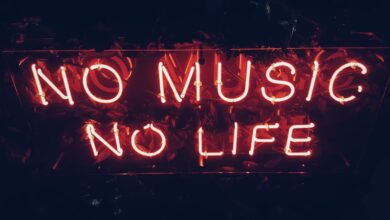How to Navigate the Complexities of Music Copyright Law

Do you ever find yourself singing along to your favorite tunes, wondering about the intricacies of music copyright law? Well, you’re not alone! Music copyright is a complex field that governs the legal rights and protections of musical works. Whether you’re an aspiring artist, a music producer, or simply a lover of music, understanding the basics of music copyright law is essential in today’s digital age. So, let’s dive into the world of music copyright and explore how you can navigate its complexities.

First and foremost, it’s crucial to grasp the fundamental concept of copyright itself. Copyright grants exclusive rights to creators and owners of original works, including musical compositions and recordings. These rights encompass the ability to reproduce, distribute, perform, and display the copyrighted material. As a musician, respecting these rights is vital to avoid infringing on someone else’s work.
When it comes to using copyrighted music, whether for a cover song, a sample, or synchronization in a film or advertisement, securing proper permissions is key. Obtaining licenses from the respective copyright owners ensures that you are legally allowed to use the music in your project. Licenses can be obtained through organizations like performing rights societies or directly from the copyright holders themselves.

To further complicate matters, different countries have their own copyright laws, and international copyright treaties add another layer of complexity. Understanding the global landscape of music copyright is important if you plan to distribute your music internationally or collaborate with artists from different parts of the world. Seeking legal advice from professionals well-versed in international copyright law is highly recommended in such cases.
In the digital age, where music can be easily shared and accessed online, issues like online piracy and unauthorized downloads pose significant challenges for musicians. Protecting your own music from infringement requires proactive measures. Registering your compositions with the relevant copyright office provides legal evidence of ownership and acts as a deterrent against potential infringers.
To sum it up, music copyright law is a multifaceted realm that necessitates careful attention and adherence. By understanding the basics of copyright, obtaining necessary licenses, and protecting your own creations, you can navigate the complexities of music copyright law with confidence. So, keep creating, respecting the rights of others, and let the melodies continue to inspire and bring joy to the world.
Are you passionate about music? Have you ever wondered how artists protect their creative works and ensure they receive proper recognition and compensation? Welcome to the world of music copyright law, where the notes and rhythms we enjoy are safeguarded. In this comprehensive guide, we will delve into the intricacies of music copyright law, demystifying its principles, and shedding light on its importance.
What exactly is music copyright law? Simply put, it grants creators exclusive rights over their musical compositions, ensuring that others cannot use or profit from their work without permission. Whether you’re a musician, songwriter, producer, or even a music enthusiast, understanding the basics of music copyright law is crucial.
So, what does copyright cover in the realm of music? It encompasses various aspects, including melodies, lyrics, arrangements, and recordings. Whenever a musical piece is created, copyright protection automatically comes into effect, granting the creator control over the usage and distribution of their work.
To navigate music copyright law effectively, one must understand the two primary types of copyrights involved: composition and sound recording copyrights. The composition copyright protects the musical work itself—the melody, lyrics, and overall structure—while the sound recording copyright safeguards a specific recorded version of that composition.
When it comes to using copyrighted music, obtaining proper permissions is vital. Licensing agreements play a significant role in allowing individuals or companies to use copyrighted music for various purposes such as broadcasting, public performances, or sync licensing for films and advertisements. Understanding the different types of licenses available, such as mechanical licenses for reproducing compositions or synchronization licenses for pairing music with visual media, ensures compliance with copyright regulations.
In today’s digital age, online platforms have transformed the music industry. However, this has also brought new challenges in terms of copyright infringement. Copyright owners need to be vigilant in monitoring unauthorized use or distribution of their work, while users must be aware of the boundaries and limitations when it comes to sharing or using copyrighted music online.
Music copyright law is a vital aspect of protecting the creative efforts of musicians and ensuring fair compensation for their work. By navigating this complex landscape with knowledge and respect for copyright regulations, artists and music enthusiasts alike can contribute to a thriving and sustainable music industry, where creativity is valued and protected.
Tangled Tunes: Demystifying the Complexities of Music Copyright for Artists and Songwriters


Hey there, fellow artists and songwriters! Have you ever wondered about the intricate web of music copyright? It’s like a labyrinth that can leave you feeling tangled up. But fear not, because today we’re here to unravel this mystery and shed light on the complexities of music copyright.
Let’s dive right in, shall we? At its core, music copyright is all about protecting your creative works from unauthorized use. It grants you exclusive rights over your compositions and ensures that you have the power to control how they are used and monetized.

One key aspect to understand is that copyright protection is automatic and begins as soon as you create a piece of original music. Yes, you read that right – the moment your melody takes shape or your lyrics come to life, you’re already on the path to copyright protection. Pretty cool, huh?
Now, let’s talk about some important terms you need to be familiar with. First off, there’s the composition copyright, which protects the musical composition itself – the melody, lyrics, and underlying musical arrangement. This means that even if someone covers your song or samples a part of it, they need your permission to do so.
Next up, we have the sound recording copyright, which protects the specific recorded version of a song. So, if you release an album or a single, the actual recording gets its own set of copyrights distinct from the composition. This is why you often see “All rights reserved” notices on albums – it’s a reminder that the recordings are protected.
Now, you might be wondering, how long does copyright protection last? Well, here’s the deal. In most countries, copyright lasts for the creator’s lifetime plus a certain number of years after their death. It’s like a long-lasting legacy that ensures your music will be protected for generations to come.
But beware! Copyright can get a bit tricky when it comes to collaborations and samples. When multiple artists work together, they might have joint ownership of the copyrights, unless an agreement states otherwise. As for sampling, it’s essential to obtain proper licenses or permissions to avoid legal entanglements down the road.
So there you have it – a glimpse into the fascinating world of music copyright. We’ve only scratched the surface, but now you have a better understanding of why it’s crucial to protect your creations. Remember, copyright is your ally, safeguarding your hard work and granting you control over your artistic endeavors. Keep creating, stay informed, and let your tangled tunes unravel into beautiful melodies that resonate with the world.
From Notes to Rights: Mastering the Legal Landscape of Music Copyright
Have you ever wondered how musicians protect their creative works from imitation or unauthorized use? The answer lies in the fascinating world of music copyright. Understanding the legal aspects of music copyright is crucial for artists and enthusiasts alike. In this article, we will explore the journey from notes to rights, demystifying the complexities of the legal landscape surrounding music copyright.
Music copyright serves as a safeguard for composers, performers, and songwriters. It grants them exclusive rights over their original compositions, ensuring they can control and profit from their artistic endeavors. These rights encompass various aspects such as reproduction, distribution, public performance, and adaptation of musical works.
In the United States, the primary legislation governing music copyright is the Copyright Act of 1976. This act establishes the foundation for protecting musical creations and outlines the rights granted to copyright holders. Additionally, it defines what constitutes infringement and the remedies available to copyright owners when their rights are violated.
When it comes to the process of securing music copyright, the authorship of a musical work plays a pivotal role. The moment a melody is composed, or lyrics are penned down, the creator is automatically entitled to copyright protection. However, registering the copyright with the U.S. Copyright Office strengthens the legal standing and provides greater protection against potential disputes.
Furthermore, licensing represents a crucial aspect of music copyright. Different types of licenses, such as mechanical licenses for reproducing and distributing music, synchronization licenses for pairing music with visual media, and performance licenses for public performances, enable artists to monetize their creations and ensure proper compensation.
Mastering the legal landscape of music copyright is essential for anyone involved in the music industry. Understanding the rights and protections offered by copyright law empowers musicians to flourish creatively while safeguarding their intellectual property. By recognizing the importance of copyright registration and licensing, artists can navigate the complexities of the legal world, ensuring that their musical creations are respected and duly rewarded.
Striking the Right Chord: Expert Tips for Artists to Safeguard Their Musical Creations
Introduction:
Are you an artist pouring your heart and soul into creating captivating music? In a world where digital content spreads like wildfire, it’s essential to protect your musical creations from unauthorized use. Whether you’re a budding musician or an established artist, here are some expert tips to help you safeguard your precious work and ensure that your talent remains exclusively yours.
-
Copyright Protection:
Copyright protection is the foundation of safeguarding your musical creations. Registering your work with the appropriate copyright authorities grants you legal ownership and exclusive rights to reproduce, distribute, and perform your music. This step is crucial in establishing evidence of your authorship and acts as a powerful deterrent against infringement. -
Secure Licensing Agreements:
Collaborating with others can bring new dimensions to your music, but it’s vital to establish clear licensing agreements. These agreements outline the terms and conditions for using your music and prevent any misunderstandings regarding ownership or royalties. Consulting a legal professional can help you draft comprehensive agreements that protect your interests and avoid potential conflicts. -
Watermarking and Metadata:
In this digital age, protecting your music online is paramount. Adding digital watermarks to your tracks can serve as a visible deterrent against unauthorized use. Additionally, embedding metadata, such as copyright information and contact details, into your music files ensures that even if they are shared without permission, their origins can be traced back to you. -
Monitor and Enforce:
Keeping a vigilant eye on your music’s usage is crucial in detecting unauthorized use. Utilize online platforms, monitoring services, and social media tools to track and identify instances of infringement. If you discover that someone has used your music without permission, take immediate action by sending cease-and-desist notices or pursuing legal remedies when necessary. -
Build a Strong Network:
Collaborating with fellow musicians, industry professionals, and copyright organizations can help you strengthen your position as an artist. Engage in networking activities, join music associations, and attend industry events to connect with like-minded individuals who share your passion for protecting intellectual property. Together, you can create a supportive community that values and advocates for the rights of artists.
Conclusion:
As an artist, safeguarding your musical creations is paramount in preserving your unique voice and talent. By following these expert tips, including copyright protection, secure licensing agreements, digital watermarking, proactive monitoring, and building a network of support, you can navigate the contemporary challenges of protecting your music in the digital age. So, go ahead, strike the right chord, and ensure that your artistic expressions remain exclusively yours for years to come.




